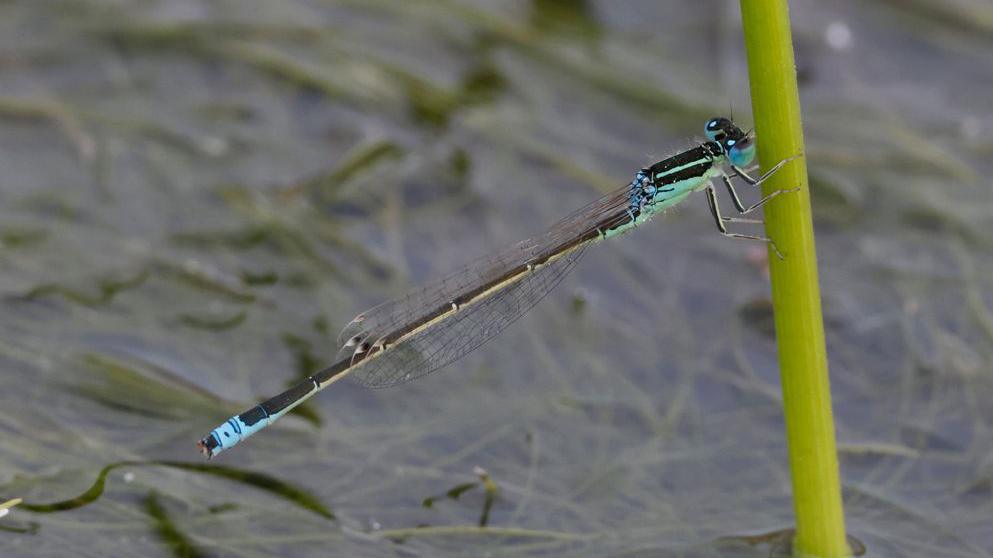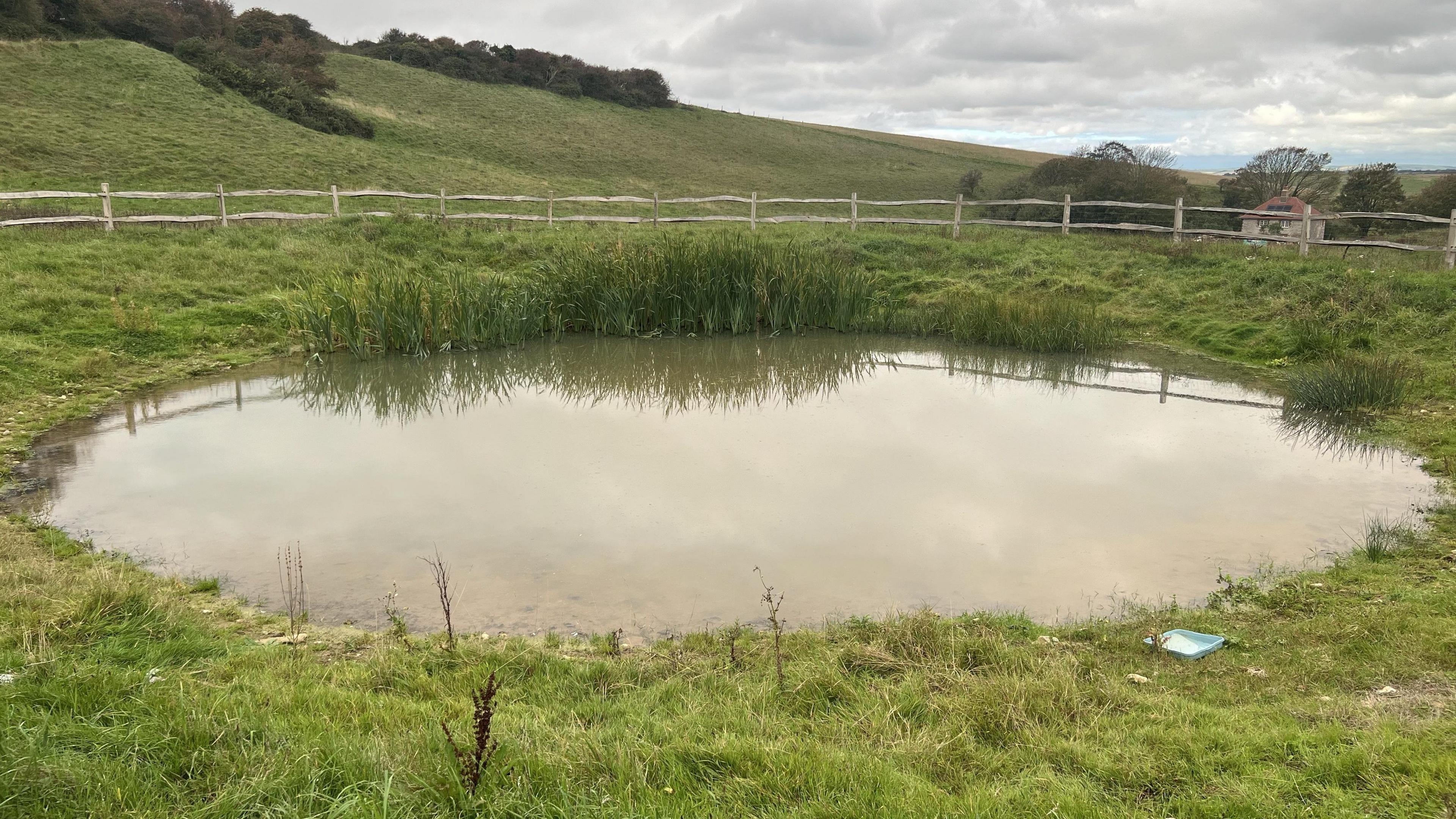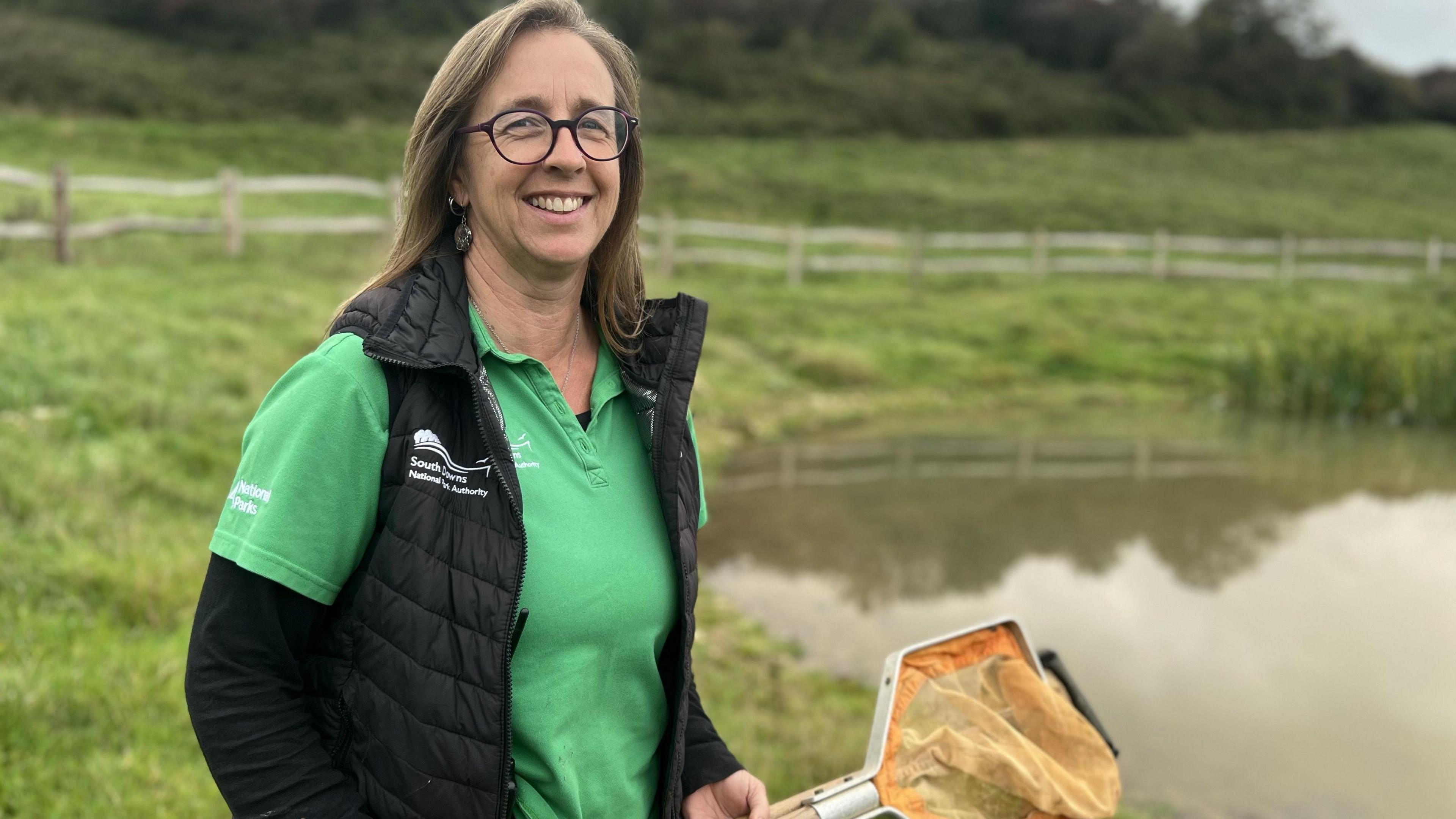Restored watering holes bring life to National Park

The scarce blue-tailed damselfly is only the sixth colony to be seen in Sussex in more than 100 years
- Published
A wealth of biodiversity has been discovered during ecological surveys of old livestock watering holes, known as dew ponds, restored by the South Downs National Park.
The scarce blue-tailed damselfly – once thought to have been extinct – was recently spotted in one of the newly restored ponds.
The national park has been working to bring 10 of the ponds back to life; providing homes and drinking water for insects, birds amphibians and mammals.
"The plants are growing in it; the insects are coming back. Just to see it alive, it's exciting when you come up here, you're never quite sure what you're going to see," Sylvia King, who carries out a survey on one the ponds, said.

Ponds support about 70% of all freshwater species
A hundred years ago, dew ponds were a common feature of the South Downs countryside.
Dug into the chalk by farmers for sheep, more than a thousand were dotted the Sussex landscape and served as important freshwater habitats for thousands of animals.
Changes in farming practice meant these ponds, which had been oases for wildlife, were left to fall into disrepair and dry-up.
The South Downs National Park has been restoring the ponds, with diving beetles, water boatmen, dragonflies, back swimmers, whirligig beetles and ramshorn snails some of the species found in the ponds.

Sylvia King, from Seven Sisters Country Park, carries out a survey on one the ponds
Warmer, drier summers is putting greater pressure on wetlands, and as the chalk rocks that form much of the South Downs National Park is porous, rain does not tend to collect in dips and hollows.
A total of 70% of the ponds that once dotted the South Downs are in poor condition or have disappeared from the landscape, according to experts.
There are also large swathes of downland where no surface water is available.
"Out on the downs, ponds are not that common," Jan Knowlson, a bio-diversity officer for the South Downs National Park, said.
"We've got the sea right there, saline lagoons, we've got rivers," but ponds, she said, were uncommon, which made the dew ponds even more important.
The park is working on restoring and returning life to 90 more ponds across the downs.
Follow BBC Sussex on Facebook, external, on X, external, and on Instagram, external. Send your story ideas to southeasttoday@bbc.co.uk, external or WhatsApp us on 08081 002250.